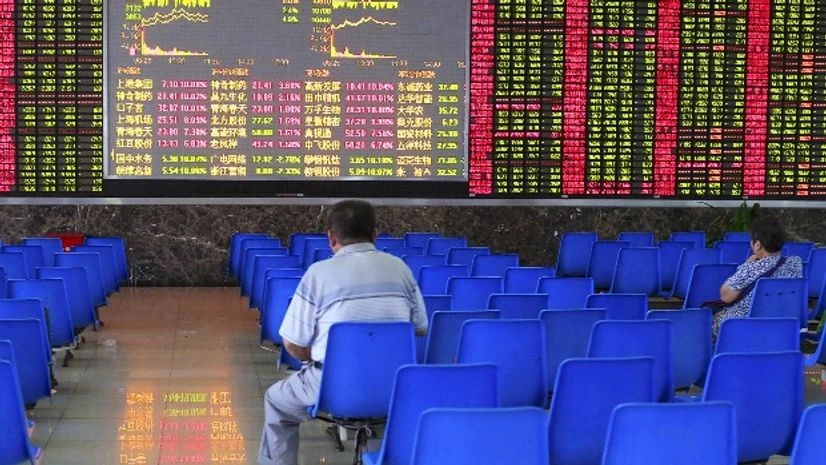China's central bank plans to tighten rules on trading of currency forwards from October, sources with direct knowledge of the matter told Reuters, in a move to curb speculation and volatility after a shock devaluation of the currency last month.
The People's Bank of China (PBOC) has repeatedly intervened to stabilise the yuan since the Aug 11 devaluation - billed as free-market reform - sent shockwaves through global markets and depressed emerging currencies.
"The forwards move is yet another step to cushion unexpected strong expectations of yuan depreciation after the devaluation," said a senior trader at a major European bank in Shanghai.
"Together with increased frequency of intervention in the spot market, this is another step backward for China's currency reforms."
The sources said the PBOC will require banks trading currency forwards to set aside reserves from Oct. 15. Banks will be required to keep the equivalent of 20% of their clients' forex forwards positions in dollar reserves to be held for a year at no interest, they added.
The base for calculating reserves will be the nominal value of new contracts clients sign with banks to purchase dollars, or banks' dollar sales to clients, traders said.
More From This Section
Excluding clients' dollar sales to banks gives a clear signal the move is aimed at curbing the yuan's depreciation expectations in derivative markets, they said.
The PBOC did not immediately respond to requests for comment.
FUNDS FROZEN, COSTS RISE
The cost of betting on the yuan is presently low in the onshore market, traders said.
"Cost to buy dollars in the forward market will increase as banks will have to borrow money in the market to put as reserves in the central bank and they will transfer the cost to clients," said a trader with a US bank in Hong Kong who has seen the new PBOC document.
In the first seven months of this year, Chinese banks concluded new yuan/foreign currency forwards contracts in which clients bought dollars totalling 1.175 trillion yuan ($184 billion), State Administration of Foreign Exchange data showed.
At this pace, roughly $5.3 billion would be frozen each month once the new rules take effect. There are no such requirements for reserves in China's local currency markets.
"They were moving towards market-oriented reforms. This is 10 steps back," said a currency trader in Hong Kong.
The yuan's devaluation by nearly 2% on Aug. 11 rattled investor confidence and increased trading volatility - particularly in offshore markets.
Offshore yuan slid to 6.43 per dollar on Tuesday, far weaker than the onshore spot rate of 6.37, as offshore investors priced in further depreciation.
The yuan weakened 2.6% in August, its worst monthly performance on record, raising concerns it could provoke capital flight even as China's wider economy stumbles.
Beijing appears to have been surprised by the global reaction to its currency devaluation and has said it sees no reason for further yuan weakness. The PBOC has also tried to restore confidence through a mild public relations campaign explaining the reasoning behind its decision.
($1 = 6.37 Chinese yuan)

)
